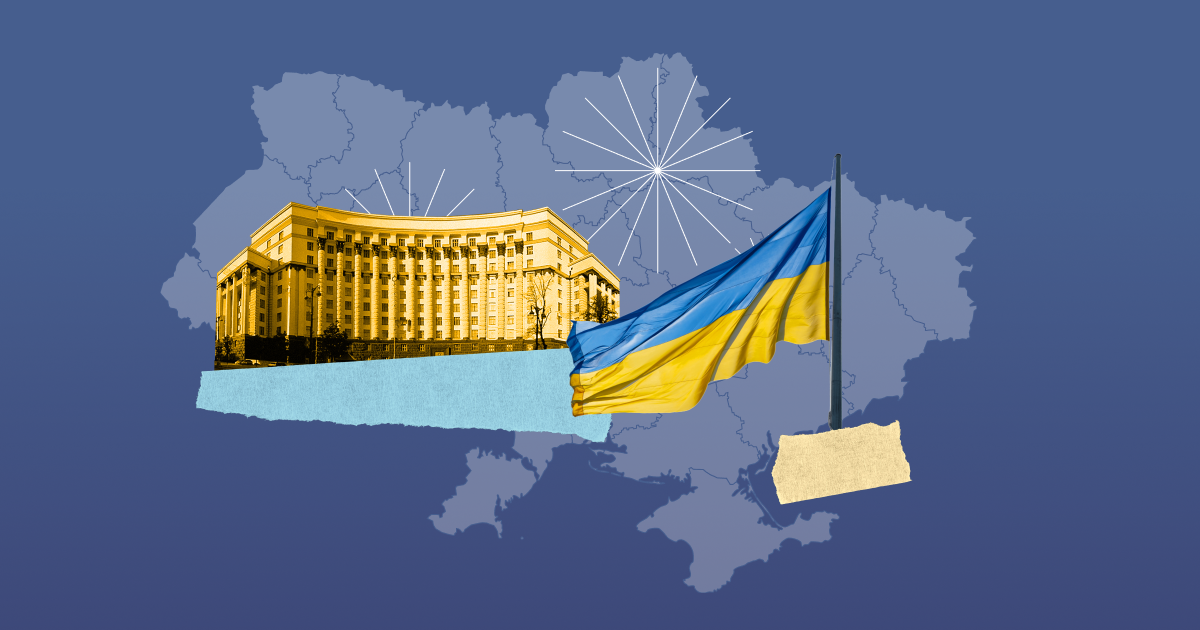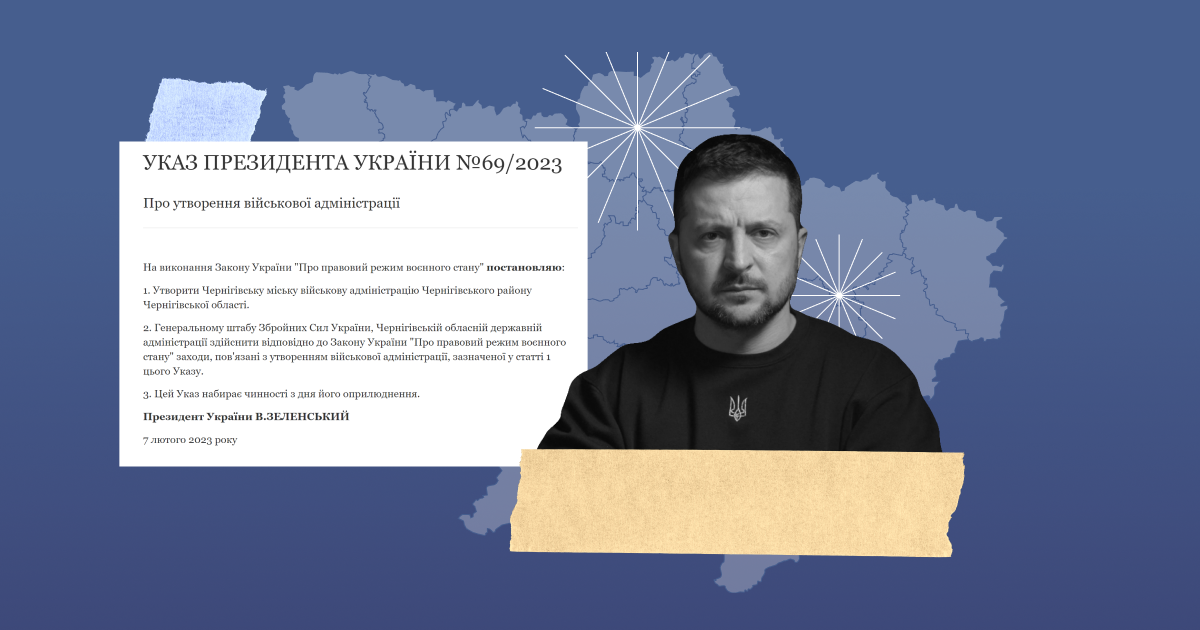Decentralisation: how communities were empowered in Ukraine and whether the reform is successful

The decentralisation reform is considered one of the most successful reforms introduced in Ukraine after the Revolution of Dignity. The empowerment of local administrations was supposed to increase citizens' awareness and responsibility for their community — the city, village or agglomeration in which they live — and to relieve state institutions of redundant responsibilities.
Read more in our material about the implementation of decentralisation and how this reform has affected local self-government in the country.
Legislation
In April 2014, the government approved the Concept of Reforming Local Self-Government and Territorial Organisation of Power. The concept assumed that local government budgets were over 70% subsidised and that 483 territorial communities were 90% supported by the state budget.
At the time, the central government wanted to deprive itself of additional powers to decide on funding and projects on the ground, especially in subsidised local governments. Another goal was to ensure the development of small towns and villages and even transfer the administration of these territorial units to district and regional centres, rather than the central government.
As part of the decentralisation plan, the government tried to introduce a bill to amend the constitution to reorganise local state administrations into control and supervisory bodies and provide a clear definition of the administrative-territorial unit — the community.
As of the end of 2023, the constitution has yet to be amended to include the concept of decentralisation. Instead, the parliament and the government have been amending the budget and tax codes since 2015 and adopting new legislation on regional policy.
The amendments to the budget and tax codes allowed for a change in the distribution of taxes between central and local governments and for a portion of taxes to be retained at the local level for local administrations to manage. Local governments received 100% of land and real estate taxes, fixed taxes paid by households, firms, and agricultural producers, and 60% of personal income taxes.
Administrations could use these taxes for community development and project financing. The amalgamated territorial communities also received the right to apply for national and international grant programmes and seek private project funding.
The draft law "On Voluntary Amalgamation of Territorial Communities" became one of the primary laws on decentralisation reform. It allowed local administrations to form territorial communities by merging smaller ones into larger ones.
As a result, more than four thousand local administrations in Ukraine are now out of almost 12,000. This law also introduced the position of village heads, who represent the interests of rural residents in the council of the amalgamated territorial community.

The law "On the Principles of State Regional Policy" was also adopted. It was supposed to regulate the implementation and execution of regional policy by both the central government and local self-government. According to the law, the Cabinet of Ministers was to formulate the national strategy, while local governments would develop regional strategies.
Regional development strategies were not supposed to contradict the state strategy, but local administrations were empowered to make decisions on education, cultural projects, humanitarian and environmental issues, and even the construction and preservation of cultural heritage in the community.
Since the reform began, 136 new administrative districts (out of 490) and 1470 territorial communities (there were more than 11,000) have been formed in Ukraine.
The decentralisation process still needs to be completed. The government aims to finally distribute powers between local and central authorities, introduce changes to the budget model to increase funding for communities, and, most importantly, enshrine the reform in the Constitution to ensure stability in the legislative field.
"Decentralisation is a success. It is one of the most successful reforms," says Kostiantyn Shokalo, head of regional analytics at the Centre for Joint Action.
He believes that the driving force was the request of local governments, which wanted more powers and the ability to decide how to run administrations without the approval of state institutions.
The expert says that the benefits of the reform include autonomy for local governments in resolving issues, powers for administrations, and funding for new powers.
"If before the reform, local budgets were filled with subsidies from the government and parliament, and sometimes it depended on lobbying the interests of cities and villages before the central government, now communities manage the funds received from taxes, programmes and grants on their own," says Shokalo.
Implementation
Local administrations have been empowered in almost all areas of self-government and public services as part of the reform. Education, culture and healthcare became the main ones. Communities could now decide on financing these areas on their own without the need for approval from the responsible ministries.
Territorial communities were able to decide which projects to allocate funds to and where to get them if they lacked funding. For example, schools were transferred to the local authorities in the Novoukrainka territorial community of the Kirovohrad region.
This change allowed the community to change the funding for schools. The school was able to purchase new equipment and textbooks for students on its own, start renovating classrooms, and open new clubs.
"In five years, the communities have gone through this path quickly and gained experience in management: they have learnt how to apply for grants, receive international assistance, etc," explains Shokalo.
However, he believes that the state policy shaped by the central government should also be adapted to the communities. All communities cannot implement the New Ukrainian School project launched by the Ministry of Education due to a lack of resources and supplies. The Ministry orders textbooks and manuals, but communities lack them.
The head of regional analytics says this happens because of a lack of communication between the ministry and local administrations responsible for education.
The decentralisation reform has also affected healthcare. Territorial communities have been solving local citizens' needs regarding access to healthcare facilities, use of resources and funding opportunities.
In 2018, the Ministry of Health approved forming primary healthcare facilities. This allowed the communities to change the provision of medical services to their residents, reformat medical institutions into primary healthcare facilities and carry out comprehensive infrastructure improvements. All this was controlled by the locals.

The government also introduced so-called "hospital districts". Now, intensive care hospitals that provide specialised medical care have to provide a minimum of 120,000 residents in the district. The newly amalgamated territorial communities were given the opportunity to create larger medical centres to cover the needs of their residents for medical care and services.
If the community had remote, smaller territorial units, it had to establish a primary healthcare facility there and develop transport infrastructure to provide residents with access to secondary healthcare facilities. It was up to the community to decide how exactly this should happen.
Kostiantyn Shokalo believes that the reform should become even more flexible — for this purpose, state institutions should listen to local self-government and implement state policy based on the developments of administrations.
"It is possible to decentralise administrative services, for example, from the Ministry of Internal Affairs, which are not transferred to the community level. The state has transferred some of the services to the newly established ASCs (Administrative Service Centres — ed.), but more can be done because the communities understand what services to provide and how best to do it. It is also necessary to increase community funding so they can launch mini-economies. This means either raising the personal income tax rate or leaving other taxes (fuel duties, excise taxes on alcohol) in the communities. We need to delegate, not take away funds," explains Kostiantyn Shokalo.
Decentralisation during the full-scale invasion
After the full-scale invasion, local administrations faced not only Russia's war crimes but also the centralisation of powers. Martial law implies centralisation, including local government powers, central government decision-making on the occupied territorial communities, and changes in funding.
The main change is that the President has introduced military administrations, where the head of the administration has the right to make decisions independently, without the consent of local council members and local community leaders.
"Centralisation of powers during martial law is a good thing," says Shokalo. Under conditions when the authorities need to make decisions faster, respond to the situation and collect information, the independence of local administrations can be a hindrance.
"Military administrations are an effective mechanism, especially when it comes to de-occupied communities. A military administration is needed there because it is difficult for local self-government to function. It is necessary to rebuild self-government in a new way," says Kostiantyn Shokalo.
However, for territorial communities far from the frontline, which are not threatened by occupation, military administrations can be dangerous for self-government and the decentralisation process in general.
Kostiantyn Shokalo gives the example of Chernihiv. In February, the Lviv Court of Appeal suspended the mayor, Vladyslav Atroshenko, for abuse of power in a private matter — transporting a car abroad.
According to the law, the mayor's powers are vested in the secretary of the city council. However, after Atroshenko's suspension, the president issued a decree creating a military city administration. A military administration is created when local authorities are unable to fulfil their duties. The head of the Chernihiv regional military administration, Viacheslav Chaus, said that the Chernihiv city administration was able to fulfil its duties.
The executive director of the Chernihiv branch of the Association of Ukrainian Cities, Mykola Silenko, also did not consider it necessary to introduce a city military administration in Chernihiv. He cited the examples of Kherson and Izium, cities where local governments suffered from the occupation and were unable to perform their duties.
"One of the risky moments is that if you do not do what is required of you, tomorrow we will establish a military administration instead of you as a local government. This is a presidential decree. In Chernihiv, the city council was simply removed, and a military administration was introduced for unknown reasons," Shokalo comments.

Chernihiv is not the only example. In early November, the Verkhovna Rada adopted an amendment to the 2023 budget, which will redirect military personal income tax (a tax on the incomes of military personnel, police officers) from local budgets to the state budget.
Personal income tax from other taxpayers will continue to be retained in the communities in the amount established by law. Communities that will have a funding gap will receive subsidies from the state budget in an amount equal to the level of revenues in 2021.
Removing military personal income tax does not solve the problem, says Kostiantyn Shokalo. He says that the frontline communities, which do not have many sources of funding, will suffer the most from this decision, and military personal income tax was the main source of funding.
Another problem with this decision is that it was adopted in October this year. Communities now cannot rely on the budget they have planned for this year. The Poltava amalgamated territorial community will already lose UAH 152 million in personal income tax.
"The state budget has already provided for subsidies for communities that will not be able to function or will have difficulties. What they [the parliament] took away will have to be returned. This will create a lot of bureaucratic procedures and financial cycles, but in the end, everything will remain as it was. Obviously, we need to fund defence, but this is a strange choice that has made the situation worse," he says.
Decentralisation aims to teach citizens to be responsible for their decisions and to be active in their communities. Local governments have also been empowered to decide for themselves and their territorial units, to look for ways to solve problems and improve the political and social life of the country. Seeking investment, financing projects without central government approval, and taking responsibility for decisions are all achievements of the decentralisation reform.
Now the process is under threat, but the reform will not be so easy to turn back, concludes Kostiantyn Shokalo. Communities received opportunities for development back in 2015, and it will be quite difficult to give this achievement away and return to what was before the Revolution of Dignity.


